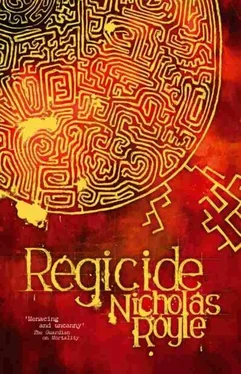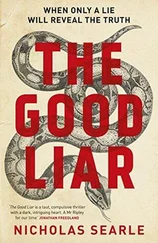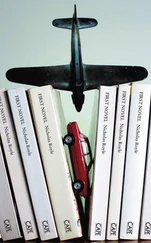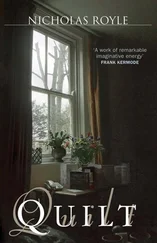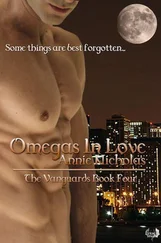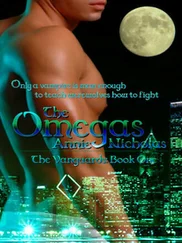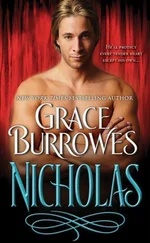The glass in the speedometer dial smashed. In a shower of blue sparks the radio blew and possibly one of the tyres also. The engine died. I broke out in a sweat. There were cars coming up fast behind me.
‘The key words are love, power and fear and all the songs are concerned with one of those ruling forces. The stunning opening piece, “Fear”, sets scenes and scopes. It takes the form of a conversation — between “them” and “us” — about ruling force: “they” ask us what runs this place. Three forces are offered. Power. Love. Finally and realistically: Fear…
‘After “Fear” there are two equally wrenching songs of fear — “From the Heart” and the closing “Prelude”. These songs are desperate searches: rebellion in a vacuum? The songs are laid out and structured to imply a spiral: upwards and onwards, round and around, constant movement.’
Paul Morley, ‘Fear! Anger! Power! Love! — and More Mancunian Melodies’, NME
Luck had not deserted me. The cars behind all had room to overtake and I drifted unsteadily to the left, my legs shaking with shock, and the car came to a dead stop in the gravel on the hard shoulder. I sat very still waiting for whatever was going to happen next. Because that’s how it felt: I was a passive figure in a drama unfolding in front of me. I could only watch. But now I sat in a silence broken only by the occasional car bowling down the middle lane. Each time one went past, the Escort rocked. It was almost comforting.
After a while I tried the ignition. Nothing. Radio: dead. Lights: no response. The car had died and I had been lucky not to have done.
I got out and had a look at the car. One of the tyres was shredded. Otherwise there were no obvious signs of what had caused its demise. I reached into my boot for my cigarettes. I had more than half a pack. I lit one and drew in a lungful. Mixed with the sharp night air it tasted good. My legs were still trembling but the smoke was counteracting the bitter taste of fear in my mouth.
I smoked the cigarette and walked around for a few minutes before I felt able to get back on top of things. I opened the door and got my jacket from the back seat, then took the keys, locked the car and set off looking for an emergency telephone.
There were two quite close but neither of them worked. I even crossed the motorway to one on the other side but that didn’t work either. My breakdown membership had lapsed but I had to get off the motorway somehow.
I walked further on and spotted a sign up ahead. It was only small and no higher than my waist, so probably was not an exit road. The sign grew larger but only slowly. Two more minutes and I was able to read it. ‘Work vehicles only’, it said, and just beyond it there was a sharp turning to the left, a single track road which led off into the darkness. I had to try it. My road atlas was still lying open on the floor at home so I had no idea how far it would be to the next proper exit. There were no major well-lit areas visible from where I was. This service road offered a glimmer of hope, at least. There were even a couple of lights winking in the velvety distance that could be workmen’s trailers or farmhouses.
I left the motorway and walked into the darkness.
The narrow road seemed to go on for a long way, petering out as a track. There was no light other than that of the cold stars and I stumbled over a cattle grid. The further I walked the more my mind drifted. The problem of the car became less serious even though there was no sign as yet of how I was going to get out of this mess. I just kept walking with the single-minded purpose — or abstraction — of the very drunk.
The track rose slightly and seemed to go over a small bridge. I stopped at the highest point and went to the edge of the track to see if I could hear or see anything. But it was all too silent and dark. There was a smell but I couldn’t place it, so I walked on. I lit a cigarette. If I’d been tired earlier I felt wide awake now but increasingly it seemed that things like tiredness and knackered-out cars just didn’t matter a great deal any more. I walked on, my boots making a humble clump, clump sound soon swallowed by the fields on either side of the road.
I saw a light in the distance, possibly one of those that I’d seen from the motorway. As I got closer, though, it became obvious it was neither a constructors’ yard nor a farm building. It was bigger than both and, in this setting, far stranger. I thought I knew what it was but had to wait until I was closer to be sure.
Flat as a pancake and as big as half a football pitch — floodlit from eight points — here, in front of me, was an open-air ice rink. I gazed at it in wonder. Quite apart from any other consideration I wanted to know how it stayed frozen in the open air in the middle of summer. But the longer I stood and watched the sparkle of the light shimmering on the surface of the ice, the less its incongruity seemed to matter. I lit another cigarette and as I was bending down to slip the pack back down the side of my boot a skater slid onto the ice. She wore a black outfit, a tight top with a loose flapping skirt that glittered with tiny flints of mirrored glass. I watched, entranced, as she completed a circuit of the rink, presumably unaware of my presence, her hair and her skirt trailing out behind. The ice shone so brightly under the lights it seemed almost to hover above the ground. I saw the girl bend at the knee as she came down towards the corner nearest to me and I knew she was going to jump. My heart beat faster. And when she jumped and twisted and kept on twisting before touching the ice my stomach flipped, my head spun and I was back in bed with Annie Risk, the trumpeter hitting his triple G. The skater was already at the far end of the ice and jumping again. There may not have been any commentary to help me but I was pretty sure she had just executed a quadruple salchow. She went into a steps sequence for all the world as if she were practising for a competition and then slipped into a spin that far surpassed anything I’d seen. She spun so fast she lost all solid form and I drew a sharp little breath when I realised she had risen at least six inches above the ice. Then she came out of the spin like wine being poured from a carafe and skated away to the far side again where she jumped another quad and drifted off the ice, melting into the darkness.
I stood watching the ice for two or three minutes hoping she might come back. I knew I hadn’t imagined her: I could still make out her signature scratched on the ice’s glittering page. Only when I turned away and felt the movement of air on my face did I realise the effect her display had worked on me. There were cold tear tracks down both my cheeks.
I walked on, and once the ice had been swallowed up by the darkness behind me I began to wonder if I’d hallucinated the whole episode.
In the darkness on both sides of the track I became aware that things were starting to change. Where there had been only trees and grass there now stood sturdier shapes. It was too dark to see what they were but soon I noticed the irregular echo of my footsteps which told me the track was edged intermittently by buildings. In the distance I saw light and in a few minutes I was walking under streetlamps that shed a diluted milky light over the disused workshops and factories lining my route. Soon, I hoped, I would find a phone.
But even after passing the openings to several side roads I still hadn’t seen a kiosk. I passed one or two beaten-up vehicles, trucks that appeared to have been abandoned. Apart from these dubious clues I saw no signs of life and so just kept on walking.
I appeared to be heading into town. God knew what town: some grim Midlands industrial community. The frequency of side streets increased and my track had widened to two lanes with a white line down the middle — a road, then. I saw a few old cars dotted about and the factories were soon replaced by four-storey blocks of flats. There were occasional shops all shuttered and padlocked. The street had that strange, alienating feel common to all dark streets. In the full light of morning — if I hadn’t managed to find a garage or a phone by then — it would all look quite different.
Читать дальше
